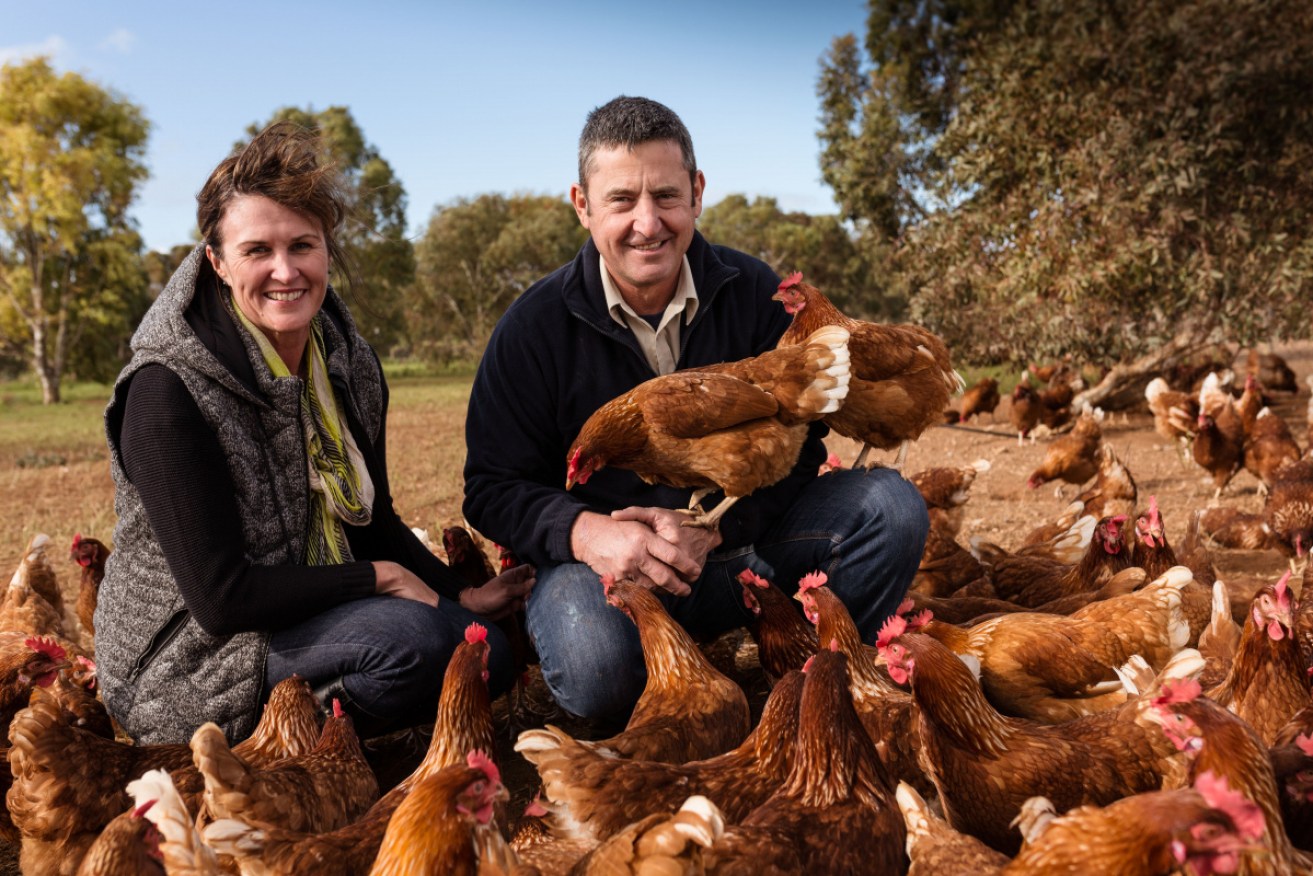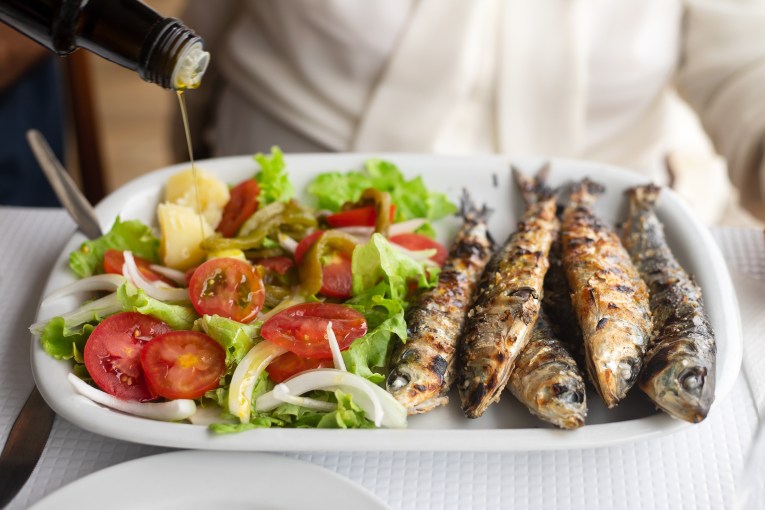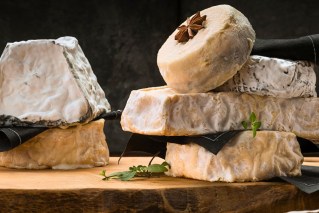Cage-free? Coronavirus shows why we should care about which eggs we buy, RSPCA says


Ange and John Rohde of Rohde’s Free Range Eggs in South Australia. Photo: Supplied
The coronavirus pandemic has shone a light on the way animals are farmed for food, with biosecurity concerns over live animal ‘wet markets’ causing international concern.
In Australia, one of the nation’s leading animal welfare groups says the pandemic shows that it has never been more important for consumers to support businesses that produce humane food.
Eggs are a dietary staple for many Australians, and consumers can vote with their dollars, and their forks, when it comes to supporting humane farming, the Royal Society for Prevention of Cruelty to Animals Australia says.
There are three types of egg production systems in Australia:
- ‘Caged’ or ‘battery’ eggs: A ‘battery’ cage system where chickens are housed in small cages. Animal welfare advocates oppose this system
- ‘Cage-free’: Sometimes referred to ‘barn-laid’, as chickens are housed in a barn without cages
- ‘Free-range’: Chickens are free to roam outside during the day and housed indoors at night.
Layer hens kept in cages are one of the biggest farm animal welfare issues in Australia, the RSPCA says.
Figures show that at least 10.7 million hens are confined to battery cages in Australia, which means they stand on wire flooring, with no space to stretch or flap their wings or have the opportunity to dust bathe or forage.
Despite the growing popularity of free-range and cage-free eggs, more than 70 per cent of the total number of layer hens in Australia are in battery cages.
“The science is clear, the community sentiment is clear, the food businesses are clear – battery cages are cruel and have no place in 21st century Australia,” the RSPCA says.
While many consumers are choosing to buy free-range or cage-free eggs from supermarkets and stores, battery cage-laid eggs are present in foods consumed when we eat out, or as ingredients in packaged products, the RSPCA warns.
While more than 75 per cent of OECD nations have already committed to transitioning their egg industries from using battery cages towards more humane and sustainable systems, Australia’s egg industry has “to date, steadfastly refused to negotiate on a staged transition away from battery cages despite the overwhelming scientific evidence and tide of public opinion moving against them”, the RSPCA says.
The organisation is urging consumers to help push for change and “seek out and continue to support humane food businesses that have made long term commitments to humane food”.
One such business is Rohde’s Free Range Eggs in South Australia.
Home to 70,000 hens, the third-generation family owned and operated business has been an RSPCA approved farm for more than 14 years.
The birds are housed in 14 free-range sheds and have a range area of 1500 per hectare.
They produce nearly 18 million eggs a year, which are packaged on the farm and distributed to cafes, restaurants, and stores.
Unlike their cousins that are confined to cages, the hens enjoy a great life, owner John Rohde said.
“So basically what happens out here is, as I look outside my window, the birds are all outside enjoying this beautiful day,” he explained.
“In the morning, the flaps open at 10 o’clock and bang, they’re all outside. And the sheds shut up at dark. So they spend their time in and out, and enjoying the weather when it’s nice.”
The eggs are then collected and graded, and delivered by truck to Adelaide restaurants, stores, and supermarkets.

The hens at Rohde’s Free Range Eggs roam outside during the day.
When egg production began at the farm in the late 1950s the eggs were barn-laid, before a decision was made to transition to free-range in the 1980s.
While demand for free-range eggs has increased, “it’s not always easy – sometimes it’s really hard”, Mr Rohde said.
When it comes to buying genuine free-range eggs, Mr Rodhe urged consumers to do their homework on the farm they come from.
“Sometimes you see a label and it’s very hard to get any information out of it,” he said.
“With us, you see our label, go to our website, and you can see us on social media. So we’re very open and transparent.
I think that’s what people should look harder at so they understand that they’re getting what they paid for.”
What consumers should know
RSPCA humane food manager Hope Bertram said consumers should be “mindful” not only of the eggs they buy from the supermarket or store, but the eggs they eat when dining out.
You need consumers to be mindful of not only the eggs they buy at the supermarket, but the eggs that they’re eating out for breakie,” Ms Bertram said.
She advised consumers to look for an RSPCA label or another trusted certification when buying eggs in order to ensure that they are genuinely cage-free or free-range
It is confusing. I often see people in the egg aisles, bewildered. And people want to do the right thing, to make a good choice,’’ she said.
“But sometimes the labelling doesn’t necessarily help that.”
Tips for shopping for eggs
- Look for eggs that are cage-free or free-range
- To find out more detail, enquire with brands and ask them about the types of farming systems the eggs are coming from
- Look for certifications by trusted organisations
- Look into any marketing claims made on the label. If the eggs are ‘independently certified’, enquire with the brand about what the certification entails.








